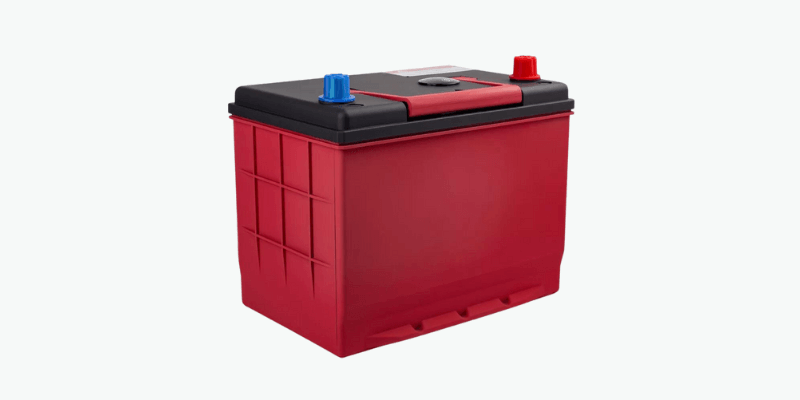Håndtering af større batterier i RVS og både kan være skræmmende for de uindviede. En vigtig faktor at overveje er gruppestørrelse. Men hvad betyder gruppestørrelse, og hvorfor er Group 24 -batteriet så populært blandt sejlere og RVers? Lad os udforske.
Hvad betyder gruppestørrelse på et batteri?
Gruppestørrelsen på et batteri refererer til dens Standardiserede dimensioner defineret af Battery Council International (BCI). Dette sikrer kompatibilitet af bakker, klemmer og tilbehør blandt batterier med den samme betegnelse.
At kende den rigtige gruppestørrelse er vigtig for korrekt batteriudskiftning og elektriske forbindelser. Du kan normalt finde det i dit køretøjs ejervejledning eller på batterikonceret.
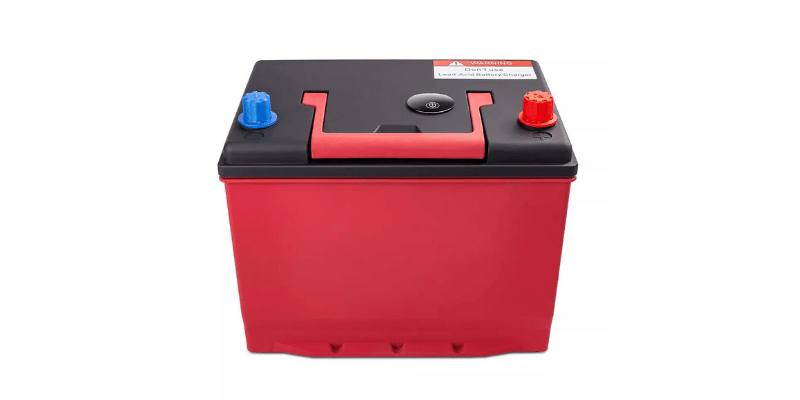
Hvad er et gruppe 24 -batteri?
Et gruppe 24-batteri er et genopladeligt batteri i standardstørrelse (L 260 mm x W 173mm x H 225mm), der ofte bruges i køretøjer, backup-kraftsystemer og medicinsk udstyr.
Primært designet som dybe cyklusbatterier har det underkategorier som 24F, 24, 24R og 24T med små dimensionelle forskelle. Det er vigtigt at vælge den korrekte type på grund af disse variationer.
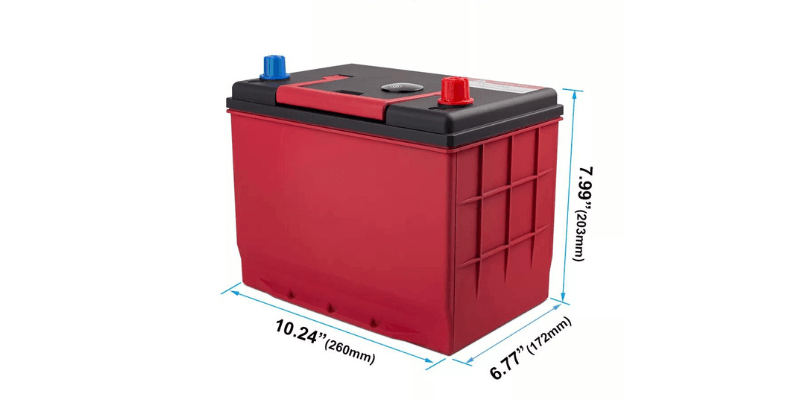
Hvilke køretøjer bruger gruppe 24 batterier?
Gruppe 24-batterier bruges hovedsageligt i køretøjer, der har brug for ekstra strøm ud over startbatteriet, såsom semi-lastbiler, RV-bobiler, busser, trailere og både.
De tjener ofte som husbatterier. En populær applikation er at tænde en kajaktrollingmotor til fiskeri eller krydstogt.
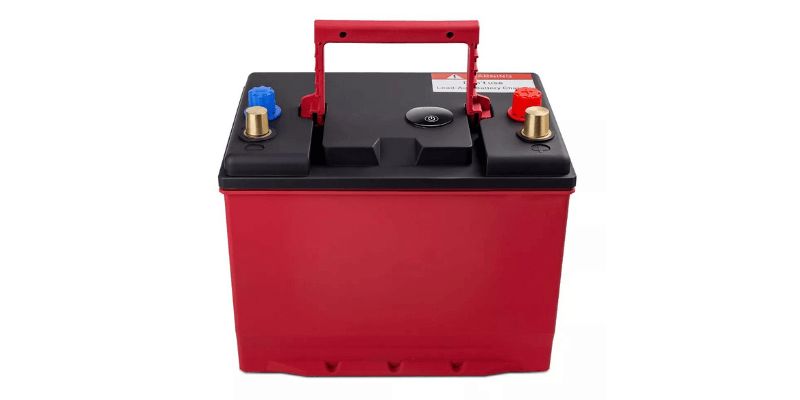
Hvad er fordele ved en gruppe 24 -batteri?
Gruppe 24-batterier er alsidige dybcyklusbatterier, der tilbyder en langvarig og stabil strømforsyning, ideel til RVS, marine brug og mobile kraftsystemer.
Lidt mindre end 100AH -batterier er de kompakte og lette at installere i trange rum til applikationer, der har brug for mindre lagret strøm.
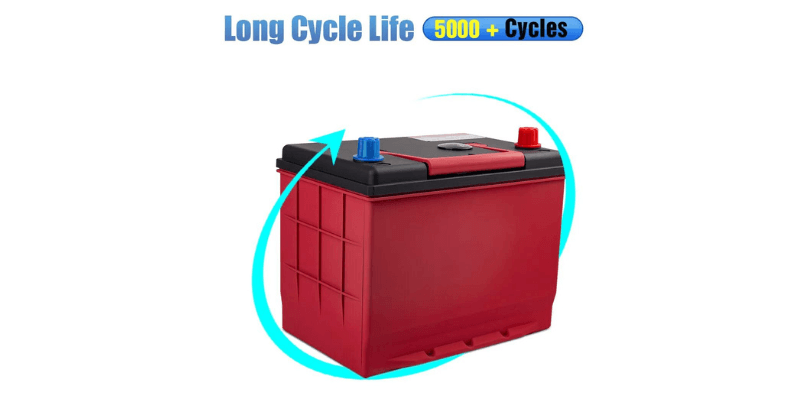
Hvad er ulemperne ved en gruppe 24 -batteri?
Gruppe 24 -batterier har en kortere runtime end større modeller på grund af deres størrelse.
De er dog omkostningseffektive og passer i forskellige rum.
Er der lithium-ion-gruppe 24 batterier?
Ja, opgradering til Lithium Group 24 -batterier undgår vedligeholdelse.
Lithiumbatterier er lettere og vedligeholdelsesfrie, hvilket gør dem til en fremragende Alternativ til traditionelle bly-syrebatterierisær til vægtfølsomme applikationer som RVS eller både.
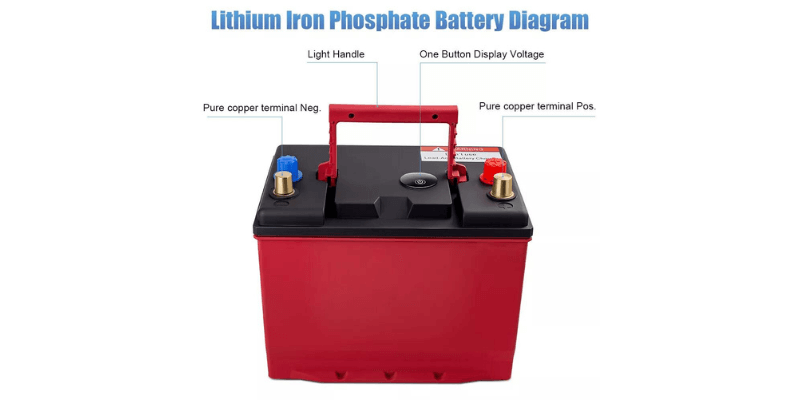
Hvad er forskellen mellem en gruppe 24 og gruppe 34 batteri?
Gruppe 24 og gruppe 34 har samme længde (260 mm) og bredde (173 mm), men gruppe 34 er kortere i højden (200 mm).
Kan jeg udskifte batteri med forskellige gruppestørrelser?
Du kan bruge forskellige batterietyper til den samme applikation, men et udskiftningsbatteri skal opfylde følgende kriterier.
- Det skulle passe tæt – Større eller mindre batterier ville kræve betydelige ændringer.
- Sørg for, at spænding og kapacitet matcher, når du bruger en anden gruppestørrelse.
Hvis disse betingelser er opfyldt, er skifte af gruppestørrelser ligetil.
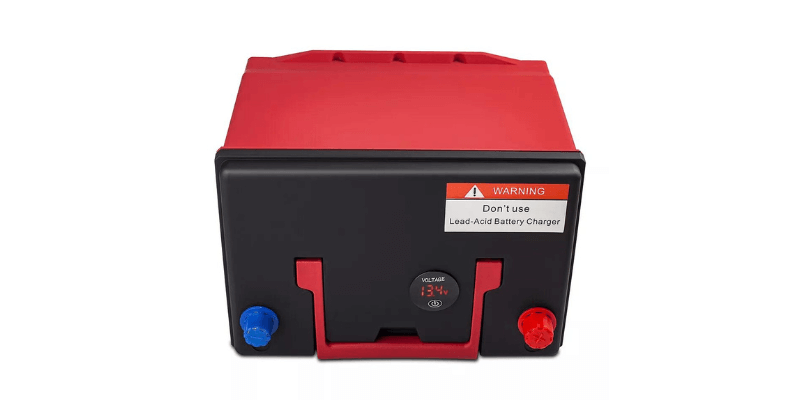
Hvordan kan jeg se, om min gruppe 24 -batteri skal udskiftes?
Tegn på batteriproblemer inkluderer revne eller svulmende tilfælde, terminal korrosion, manglende evne til at holde et gebyr og starte vanskeligheder. En belastningstester eller multimeter kan evaluere krumning af ampere og reservekapacitet.
Konklusion
Mange RV'er, både og andre køretøjer bruger gruppe 24 -batterier på grund af deres alsidighed og strøm. Husk disse oplysninger til dit næste batterivalg eller udskiftning for at undgå at føle dig magtesløs.
Relateret artikel:


